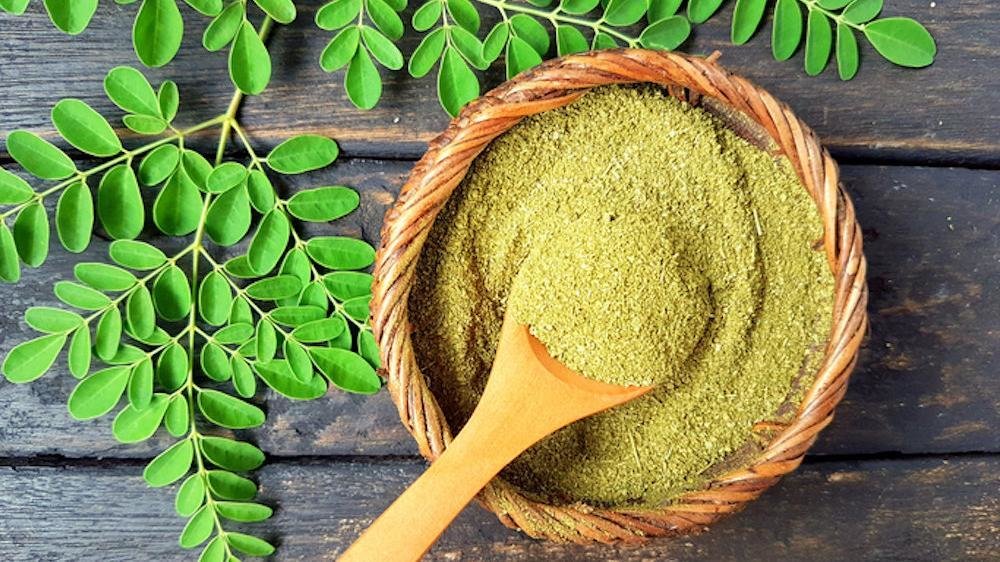
Did you know that if we all ate moringa leaves, the world would be free of anemia? Also known as drumstick tree or horseradish tree, it's a small plant native to India and very popular in Asia and Africa. Every part of moringa has its own unique benefits, including increasing breast milk supply, making the whole plant indispensable. This plant can survive even in the harshest climates. Some people call it the "tree of life," and once you read about its benefits, you will gladly agree with this moniker.
More from MamásLatinas: All the times Thalía inspired us to hit the gym
1. It's power-packed with nutrients. Researchers have found that just 1 ounce of this plant contains a higher amount of vitamin A than carrots, more iron than spinach, more calcium than milk, more potassium than bananas, and more vitamin C than oranges. It contains B vitamins as well. It's also said to be very rich in all of the essential amino acids without the unhealthy fats. Mineral wise, it also contains sulfur, iron, selenium, magnesium, zinc, phosphorous and copper. Additionally, it's also rich in choline and essential fatty acids.
It is a true superfood!
2. It's antibacterial and antifungal. The extract of the leaves and seeds contains a compound that hinders the growth and proliferation of microorganisms such as E.coli, E.aerogenes and S.aureus. The seeds can be used to purify water.
3. It reverses aging. Moringa contains about 46 antioxidants and more than 36 anti-inflammatory compounds. It contains zeatin, which is a cytokinin that delays the aging process. It's a powerful antioxidant that also suppresses the growth of cancerous cells. Moringa contains high amounts of lutein, which prevents macular degeneration. Additionally, it has caffeoylquinic acids that are choleretic and diuretic. They also protect your liver against hepatitis and other diseases.
Some of the other antioxidants it contains includes rutin, quercetin, xanthins, alpha carotene and kaempferol.
4. It protects the heart. Research has shown moringa to be highly effective at lowering blood pressure and cholesterol. Its blood pressure lowering effect can be attributed to compounds such as nitrite and glycosides. It even contains a bioactive compound, known as B-sitosterol that keeps our cholesterol balance maintained. Beta-sitosterol also prevents prostate enlargement, and has several anti-inflammatory properties. It reduces LDL and triglyceride levels as well.
5. It shields the liver. The leaves of moringa contain a compound called quercetin that is shown to reverse the liver damage induced by high fat and high protein food items. It removes the fat build up in the liver and prevents insulin resistance as well. The chlorophyll in moringa detoxifies our body and supports the functioning of liver.
How to eat moringa:
The leaves can be eaten raw or cooked. You can even steep the leaves to have it as a tea. Dried moringa leaves can be crushed and stored in a powder form for years without risking nutrient loss. The young pods, also known as drumsticks, can be eaten as asparagus. More mature ones are harder to eat like this, so they need to be cooked and then the inner flesh needs to be scraped out. The leaves are best to be eaten raw to get the maximum nutrients.




